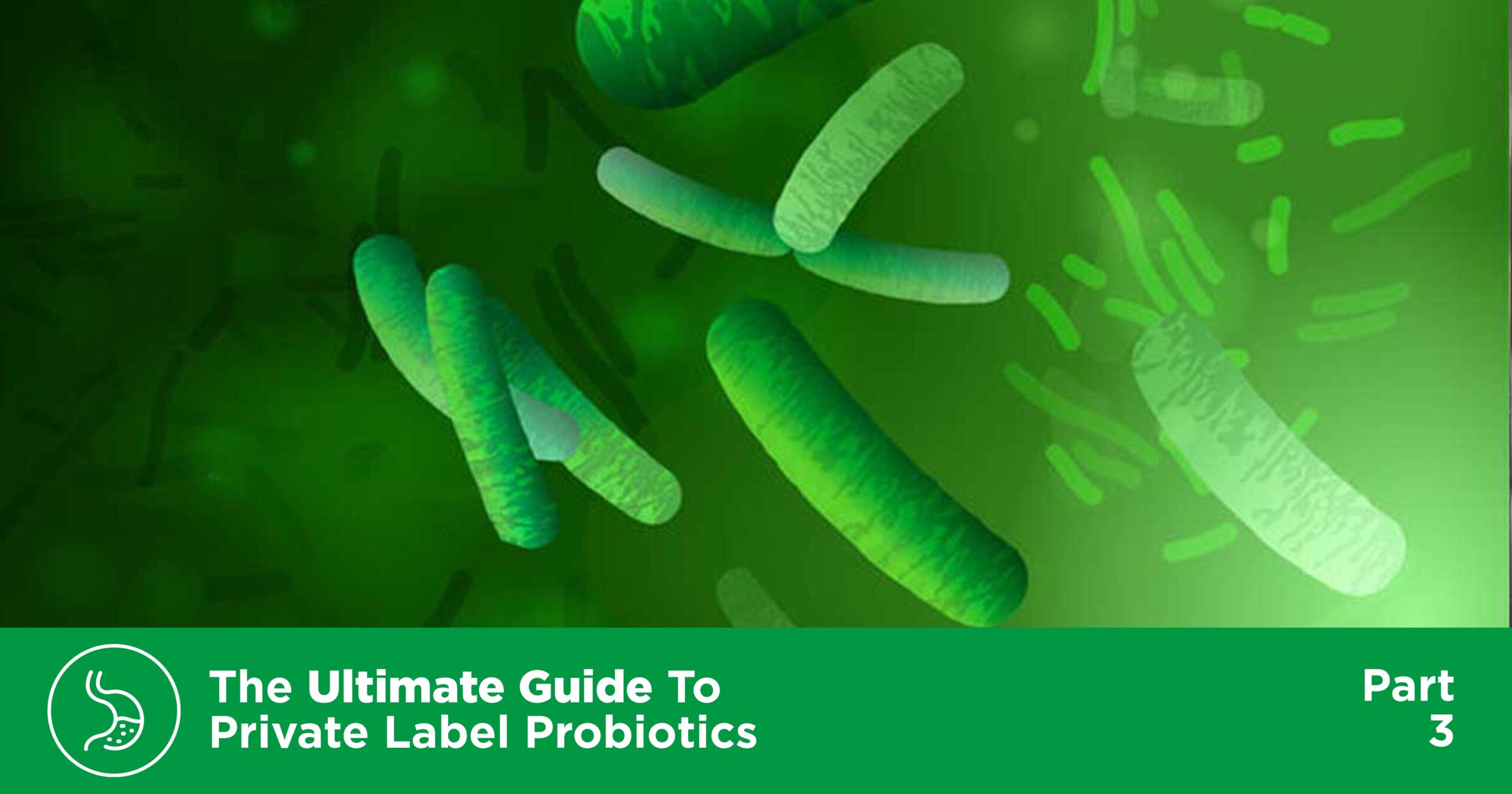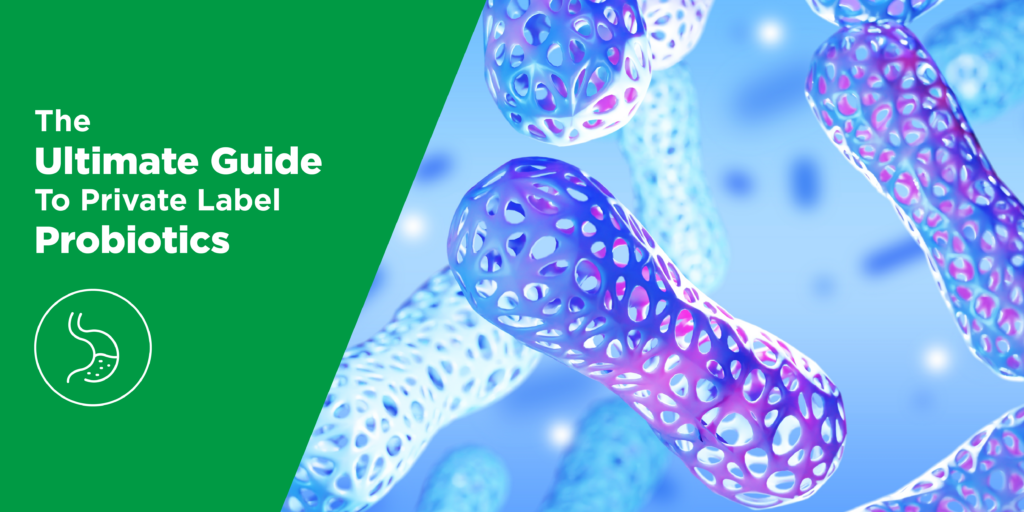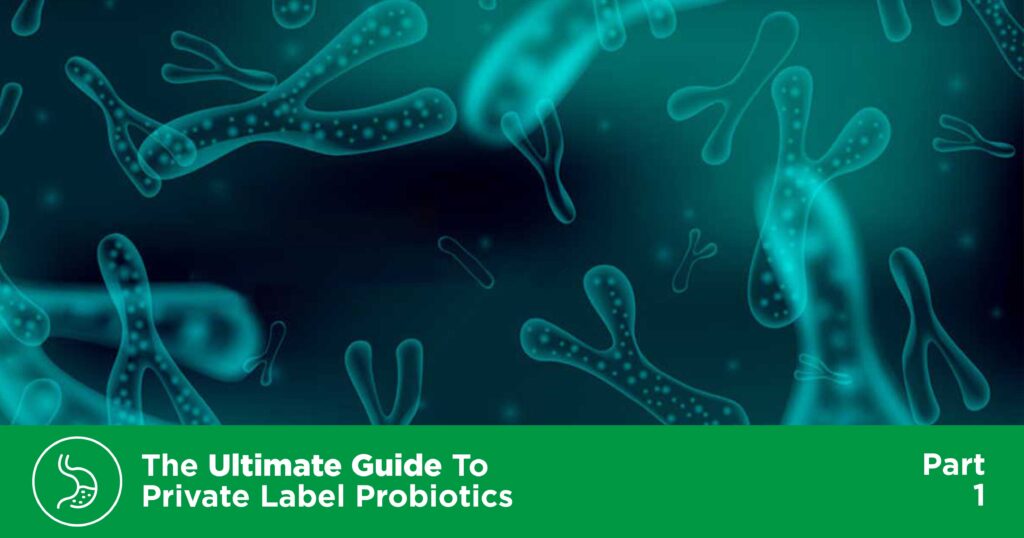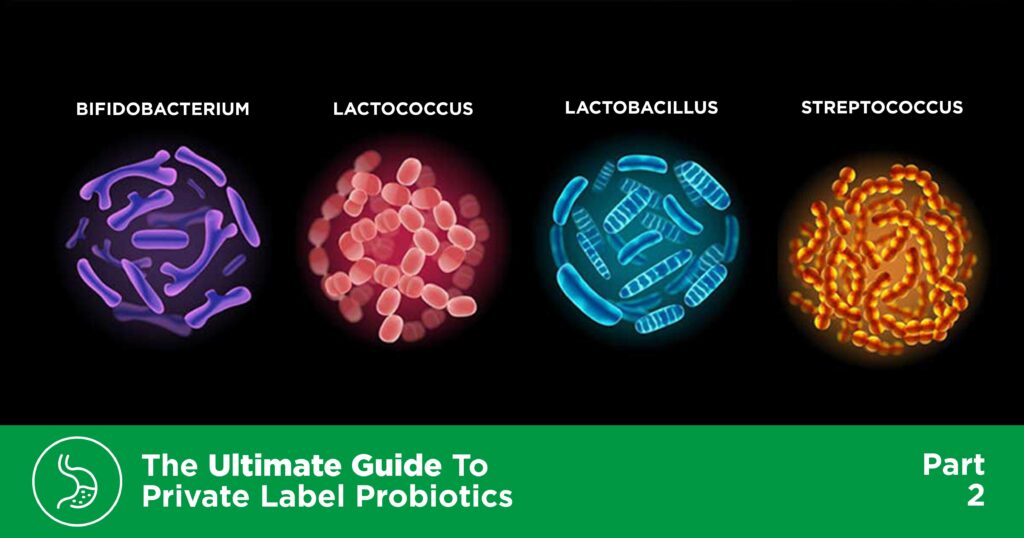This is part of our Ultimate Guide to Private Label Probiotics, a complete overview of the benefits of probiotic supplementation for consumers, some of the different strains and their specific uses, the process of responsibly manufacturing a probiotic product, and what to look for when choosing a probiotic manufacturer.
Prebiotics are the healthy food that probiotics need in order to survive and thrive. Foods in the diet which are high in fiber provide various health benefits. When this fiber is consumed, it’s fermented in the large intestine by the bacteria that live there. This fermentation process creates the prebiotics. In addition to providing a food source for probiotics, the presence of these prebiotics helps to strengthen and increase the number of good bacteria, and also to suppress the growth of bad bacteria, which creates an optimal environment for good digestive health.
Types of Prebiotics
Most of the prebiotics identified are oligosaccharides. They are resistant to the human digestive enzymes that work on all other carbohydrates. This means that they pass through the upper GI system without being digested. They then get fermented in the lower colon, and produce short-chain fatty acids that feed the beneficial bacteria that live there. Oligosaccharides can be found in foods such as kidney beans, chick peas, lentils, onions, garlic, leeks, flax seeds, honey, bananas, lemons, chia seeds, tomatoes, and chocolate.
Fructo-oligosaccharides (FOS) and Galacto-oligosaccharides (GOS) are the two important groups of prebiotics with beneficial effects on human health. Both groups are a food source for lactobacilli, bifidobacterium and other beneficial probiotics that live in the intestines.
Fructo-oligosaccharides (FOS) pass into the intestines through the stomach, where beneficial bacteria and yeast eat them. During this process, they cleanse the system, helping with the digestive process and providing immune support.
Galacto-oligosaccharides (GOS) help to support the immune system, and inhibit the survival of potentially harmful bacteria in the body, such as salmonella and E. coli.
The Role of Inulin
One of the most common types of FOS is inulin. Inulin is a type of soluble fiber that is found in many plants, and is also added into many dietary supplements as a food source for probiotics. However, inulin on its own offers a variety of health benefits.
Inulin helps to slow the digestion process, which can facilitate better absorption of nutrients from food, and help to prevent spikes in blood sugar from carbohydrates. This means that inulin can help to support healthy blood sugar levels, which may be of significant benefit to people with pre-diabetes conditions.
Inulin also supports the immune system, which may help to protect against cancers of the digestive system, and researchers are actively exploring this use in the prevention of cancer. In another study, inulin was used in a powdered form to determine whether it contributed to feelings of health and well-being. This study concluded that the people who took the inulin were happier, less hungry, and felt more full over a period of time than people who received a placebo.
Research is even connecting the health of the gut microbiome to a good night’s sleep. Several studies have found that dietary prebiotics can improve non-REM sleep, as well as REM sleep after a stressful event. Recent University studies measured sleep over an extended period of time, and demonstrated conclusively that diversity within this microbiome increases sleep efficiency as well as total sleep time.
Key Takeaways
- Prebiotics are healthy food for probiotics.
- Prebiotics come from dietary fiber, which is fermented in the large intestine.
- Prebiotics offer their own health benefits, independent of probiotics.
- Fructo-oligosaccharides (FOS) and Galacto-oligosaccharides (GOS) are the two important groups of prebiotics with beneficial effects on human health.
Next: ➤ Learn More About the Advantages of Probiotics in Dietary Supplements.

†These statements have not been evaluated by The Food and Drug Administration. This product is not intended to diagnose, treat, cure or prevent any disease.





